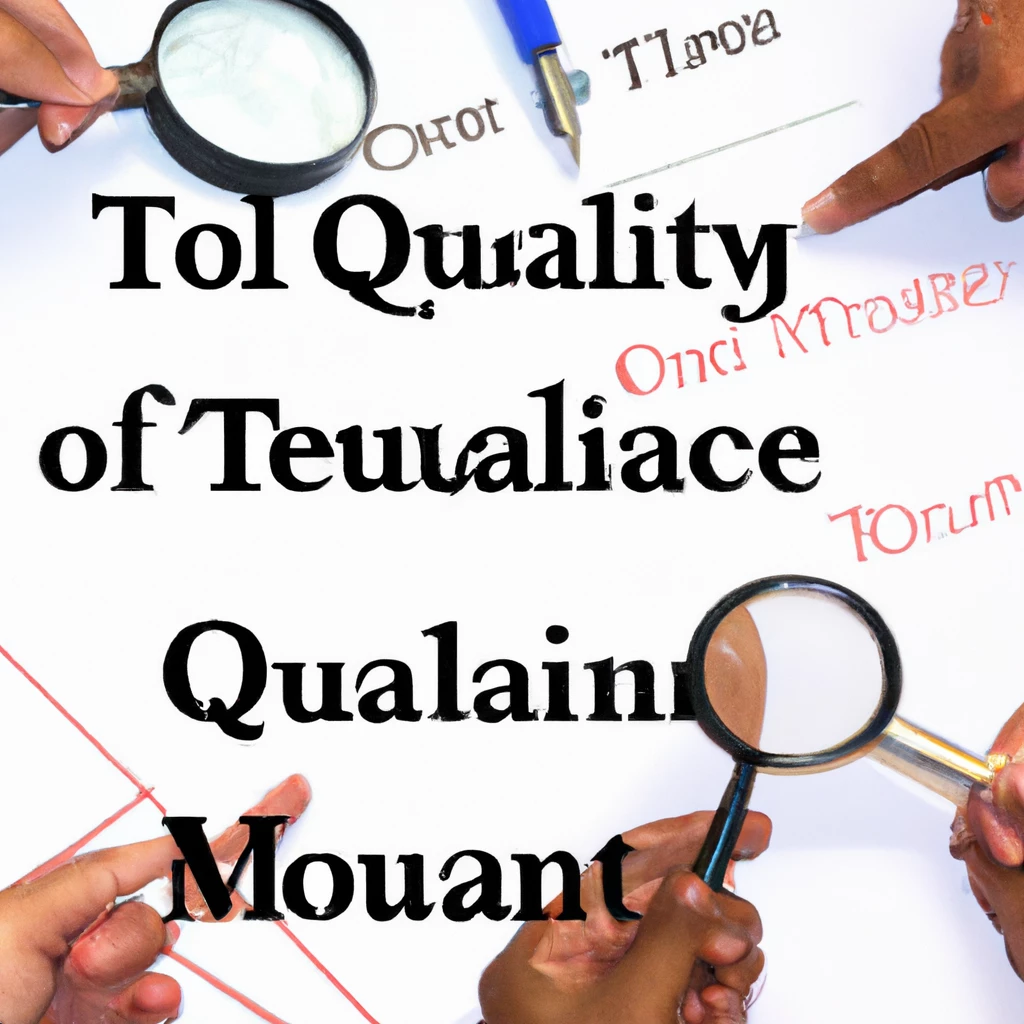What Is Total Quality Management (TQM)?
Total Quality Management (TQM) refers to an ongoing process that focuses on identifying and minimizing errors in manufacturing operations. It plays a crucial role in enhancing supply chain management, elevating customer satisfaction, and ensuring the workforce is adequately trained.
The primary goal of TQM is to establish accountability among all stakeholders involved in the production process, emphasizing the overall quality of the final product or service.
Key Takeaways
- Total Quality Management is a continuous process aimed at error detection and reduction.
- TQM optimizes supply chain management, enhances customer service, and ensures workforce competency.
- The core focus is on enhancing an organization’s outputs, including products and services, by continuously refining internal practices.
- TQM emphasizes the accountability of all parties in the production process for the end product’s quality.
- TQM is guided by principles like customer focus, continuous improvement, and adherence to processes.
Katie Kerpel / Investopedia
Understanding Total Quality Management (TQM)
Total Quality Management represents a structured approach to overall organizational management. It aims to elevate an organization’s outputs, encompassing goods and services, through continual internal practice enhancements. The standards set under TQM reflect internal priorities and industry benchmarks.
Industry standards, defined at various levels, encompass compliance with laws and regulations pertinent to business operations. These standards also encompass producing items according to established norms, contributing to quality assurance.
Example of TQM
Toyota’s implementation of the kanban system exemplifies Total Quality Management in action. The kanban method, a signal triggering precise actions, facilitated Toyota’s just-in-time (JIT) inventory process.
By maintaining minimal inventory levels to fulfill customer orders promptly, Toyota streamlined its assembly line efficiency. Each part of the assembly line received a unique card linked to inventory, allowing seamless operations.
This efficient inventory system resulted in enhanced automobile production at competitive prices, a testament to effective quality management practices.
History of TQM
Total Quality Management traces back to Walter A. Shewhart’s pioneering work in modern quality control from the 1930s. Noteworthy figures like Joseph M. Juran and W. Edwards Deming further refined TQM concepts, shaping quality management frameworks.
The origin of the term “total quality management” remains ambiguous, although seminal contributions from key figures molded the foundational concepts.
Primary Principles of TQM
TQM revolves around a customer-centric process that continually enhances operational management practices. It necessitates aligned efforts to boost product/service quality and refine production processes. Several fundamental principles underlie TQM.
Focus on Customers
Customer feedback drives TQM, enabling companies to cater to specific requirements and improve manufacturing processes. Insights from customer surveys inform impactful changes enhancing product durability and quality control procedures.
Commitment by Employees
Employee engagement and training are critical for TQM success. Clear communication of organizational goals, adequate resources, and reduced attrition rates underpin TQM principles.
Improve Continuously
Continuous process enhancement within a company fosters adaptability to market dynamics, enabling a competitive edge over industry peers. Incremental improvements drive sustained success and market relevance.
Adherence to Processes
TQM’s systematic approach hinges on process adherence, visualized through flowcharts and workflow documentation. Process analysis is integral to identifying and rectifying inefficiencies.
Strategic and Systematic Approach
A strategic, system-based decision-making approach delineates TQM’s core tenet. It embeds quality as a foundational element, necessitating robust support and investments for sustained progress.
Data Utilization
Data analytics and feedback mechanisms are crucial for evaluating process efficacy. TQM leverages data to gauge performance metrics, aligning anticipated outcomes with actual results for continuous improvement.
Integrate Systems
System integration streamlines information flow across departments, promoting data accessibility for informed decision-making. TQM’s goal is seamless connectivity to enhance organizational efficiency.
Communication
Effective communication is pivotal in TQM implementation, instilling motivation, aligning processes, and averting errors. Clear communication channels drive operational synergy and navigate organizational changes.
Successful TQM adoption hinges on comprehensive adherence to these principles, ensuring sustained benefits for the organization.
How to Implement TQM
Implementing TQM is a tailored process that aligns with a company’s unique needs and industry requirements. Formulating a customized implementation checklist is key to driving successful TQM integration.
- Understand your company’s culture, values, and existing systems.
- Create a comprehensive master plan aligned with your organizational goals.
- Evaluate customer expectations to enhance service delivery and product quality.
- Formulate a dedicated team to operationalize TQM goals and embed them in daily processes.
- Solicit ongoing feedback to gauge progress and refine TQM strategies.
Implementing TQM is a gradual process that demands sustained commitment and resources.
Advantages and Disadvantages of TQM
When executed effectively, TQM results in cost-efficient product manufacturing and enhanced customer loyalty through superior quality. It drives savings across production, distribution, and administrative functions, fostering agility and proactive planning.
However, fully embracing TQM principles poses challenges, requiring extensive buy-in, financial investments, and organizational alignment. Transitioning to TQM may face resistance and necessitate substantial overhaul, potentially leading to talent attrition and operational disruptions.
Industries Using TQM
While rooted in manufacturing, TQM principles find application across diverse industries. Its systemic approach fosters long-term transformative change, resonating with sectors like finance, medicine, and beyond. TQM principles transcend departmental silos, driving holistic organizational improvement.
Cross-departmental application ensures unified goal pursuit and operational enhancements, encompassing administration, marketing, production, and employee training.
Total Quality Management oversees all operations to maintain excellence levels, encapsulating quality policy, planning, assurance, and continuous improvements.
Various principles underpin TQM, emphasizing leadership, quality focus, customer priority, continuous improvement, and skill development.
A TQM diagram visually represents business processes, highlighting weaknesses and enabling strategic adjustments.
The Bottom Line
Total Quality Management fosters an organizational-wide quality improvement culture, propelling operational excellence and heightened customer satisfaction. By focusing on error reduction, process efficiency, and continuous enhancement, TQM underpins sustainable business success.
